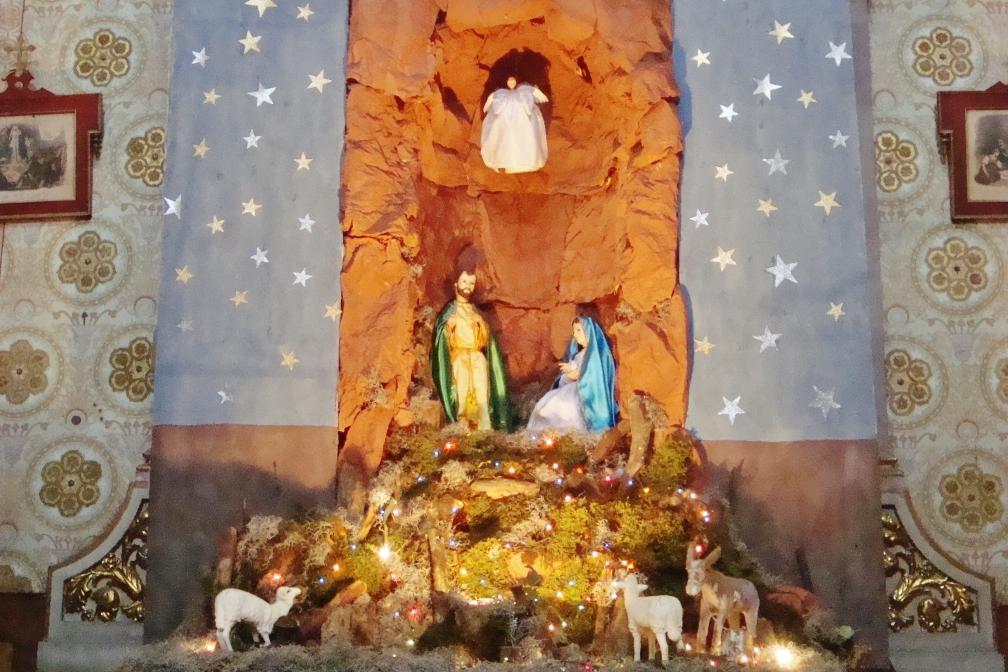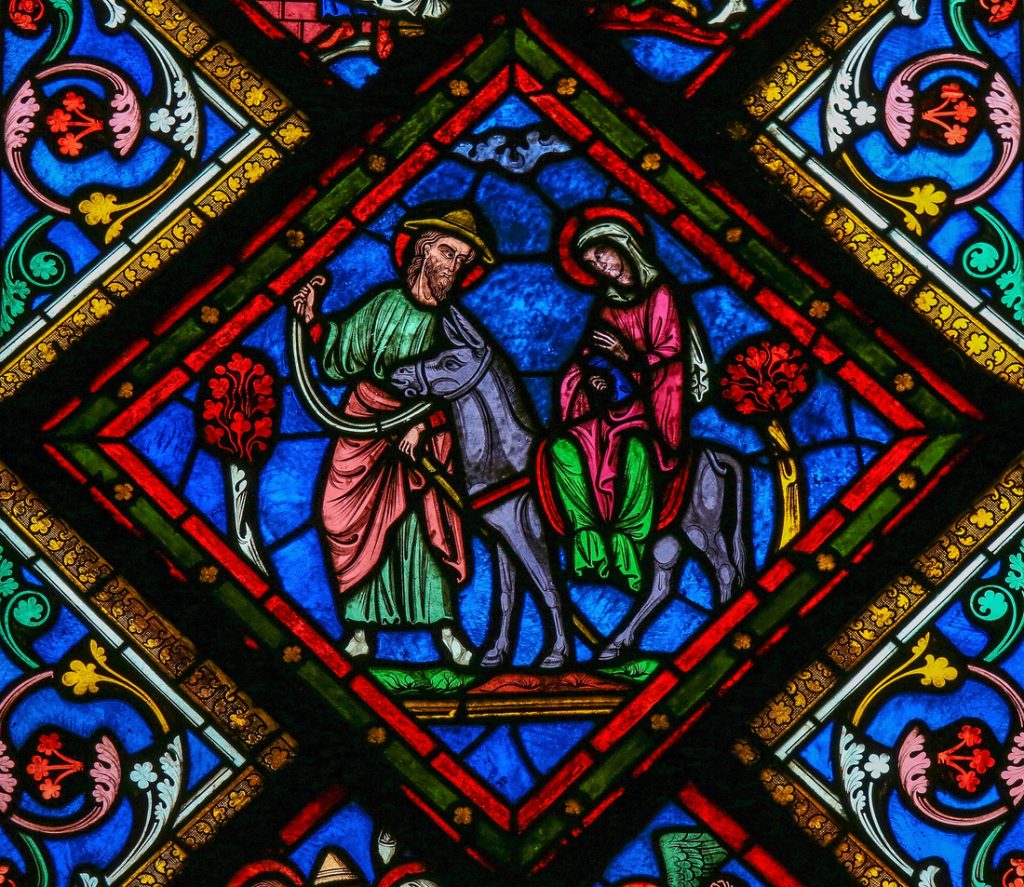Making Room: The Celebration of Las Posadas
“But there was no room at the inn.”

That was my line in my preschool’s Christmas pageant, and I delivered it with appropriate solemnity, tinged with a little bit of righteous indignation. After all, what four-year-old child wouldn’t be outraged that Mary and Joseph couldn’t find a place to sleep?
Each year, our preschool presented a Christmas pageant. Usually, it was the standard Nativity play, complete with lots of sheep and angels. That year, however, the school decided to present a posada.
Celebrated yearly from December 16 through 24, Las Posadas (Spanish for “the inns”) is a religious ceremony celebrated in Mexico, parts of Latin America, the Philippines, and in Hispanic communities in the United States. It is, in fact, a novenario, or extended devotional, as well as a community gathering.

photo credit: Catedrales e Iglesias
Over the nine nights, processions are held, recreating Mary and Joseph’s search for lodging on the night of Jesus’ birth. Certain houses are chosen to be the “inns,” and the processions are led by a child dressed as an angel. “Mary” and “Joseph” visit the “inns” and are turned away. While the processions are part of a greater devotional, the posadas are really celebrations, bringing the neighborhood together to pray, eat, light fireworks, break piñatas, and generally enjoy being a community.
Like many midwinter celebrations, Las Posadas has its roots in celebrations of the winter solstice, when the days slowly start to get longer and the nights shorter.
For the Aztecs, the ancient Mesoamericans of central Mexico, the winter solstice was one of their most important celebrations of the year. According to the Aztec calendar, December 12 was the feast day of Tonantzn, the mother of the gods. In addition, the most important Aztec deity, the sun god Huitzilopochtli, was believed to have been born in December.
As part of Spain’s attempts to create an empire in the New World, Catholic friars and priests were deployed as front-line troops to “convert” the natives. The Church has a long, syncretic tradition, assimilating indigenous traditions and rituals into Catholic practice.
Christmas, with its myriad of traditions around the world, is the perfect example of this syncretism. The tradition of caroling has its roots in Anglo-Saxon fertility rituals. Early Germanic tribes decorated trees with fruit and candles to honor the god Odin. Holly wreaths, feasting, and the giving of gifts were a Roman tradition during Saturnalia. In fact, the early Church used the festival of Saturnalia, held in honor of the god Saturn around the winter solstice, as the basis for its Christmastide celebrations. (It is thought by Biblical scholars that Jesus was born in the summer.)

When Spain was busy conquering the New World in the 16th century, an enterprising Augustinian prior of San Augustin de Acolman near Mexico City named Friar Diego de Soria obtained a papal bull from Pope Sixtus V stating that Misas de Aguinaldo, or “bonus masses,” could be celebrated on the nine days leading up to Christmas as a way of teaching the indigenous Mexicans about the holiday. (Nine days. Nine months of Mary’s pregnancy. Get it?) The idea of re-creating the Holy Family’s search for lodging came from medieval mystery plays, which had been a popular means of teaching the Bible to a largely illiterate population in pre-Renaissance Europe.
It was tradition in Aztec culture to worship the sun god Huitzilopochtli with great pageants and processions. Therefore, the canny friars incorporated the processions into the “bonus masses” allowed in the papal bull, while bringing in elements of the Nativity plays from Europe. And a new Christmas tradition that would eventually be celebrated around the world was slowly born.
In America, Las Posadas is usually celebrated with lots of food, star-shaped piñatas, and neighborhood fireworks. San Antonio celebrates a posada along the River Walk. Kingwood, near Houston, has a big Las Posadas celebration. In the Metroplex, official posadas were interrupted by the pandemic, but the Latino Cultural Center in Dallas always celebrates a posada in the days before Christmas. And unofficial neighborhood posadas are traditional in Hispanic neighborhoods throughout Texas.
What began as a way for the Catholic Church to incorporate indigenous traditions into Church customs as a means to conquer the native Mexican population has evolved into a celebration of community. If you happen to find one near you, I highly suggest you go. You will not be disappointed.


 Sign in
Sign in

